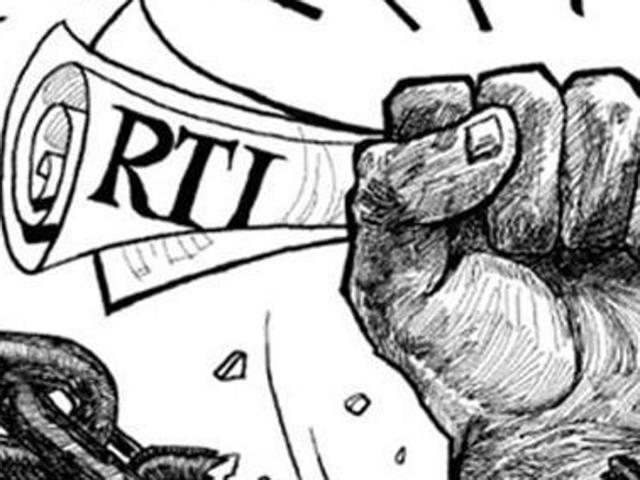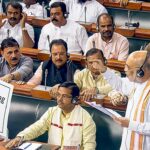By K Raveendran
It would be an ideal situation if political parties are brought under the purview of the rights to information (RTI) Act as it would introduce complete transparency in the functioning of the parties. But unfortunately, many ideal situations are never practical and as such remain unattainable. The demand by the Association for Democratic Reforms and others as well as the order passed by the Central Information Commission for the inclusion of political parties within the ambit of RTI Actwill in all probability remain unfulfilled.
Chief Justice D Y Chandrachud the other day acknowledged that political parties may ‘have a point’ in being concerned that bringing them under the ambit of RTI Act may lead to situations where they may be asked to disclose even details such as candidate selection or other deliberations.“They have a point when they say, don’t ask us to disclose how we choose our candidates…” the CJI said while presiding over a three-judge bench which heard two PILs seeking to bring political parties under the law.
One of the petitioners, activist Ashwini Upadhyay, urged the apex court to declare political parties, registered under Section 29A of the Representation of the People Act, 1951, a ‘Public Authority’ under Section 2(h) of the Right to Information Act, 2005, to make them transparent and accountable to the people and curb use of black money in elections. The petitioners also pointed out that the Central Information Commission had passed two orders saying that political parties be brought under the Act. Their argument was based on the fact that political parties get tax benefits as well as land allotments from the government and as such they must be considered as ‘public authority’.
The petitioners, therefore, wanted the Supreme Court to issue a direction to the Election Commission of India to ensure compliance with the RTI Act and other laws related to political parties and deregister them if they fail to abide by them. They further argued that the government facilities, including free airtime for political parties on Doordarshan for election campaign, amounted to indirect financing by the government and as such the parties must be held accountable like any other public institution.
All political parties, the left parties included, have opposed any move to bring them under the purview of RTI. In fact, appearing on behalf of the central government, Solicitor General Tushar Mehta challenged the order of the Central Information Commission saying it cannot be used to seek a judicial order to the government to bring political parties under the RTI.
The Communist Party of India (Marxist) took the stand that while the party has no objection to RTI with regard to ensuring financial transparency, there cannot be requests under RTIon why a candidate has been selected or for details on the internal decision-making process of a party.
There is no doubt that the selection of candidates by political parties often involves considerations other than merit and are sometimes based on most outlandish grounds, including monetary considerations. There have been reported instances of candidatures having been put on auction, with the highest bidder walking away with the ticket. But there is nothing under the electoral laws of the country that pins political parties down to strict adherence of democratic principles and ethics. This is because no law can be a substitute for a sense of morality.
If a political party decides that its cardinal principle is a certain abhorrence to principles, there is nothing that the Election Commission, the courts or anybody else can do about it. That issue can only be settled in the people’s court in the sense voters will reject such a party. While it is true that whenever such allegations are raised, the political party concerned go to any length to deny that there was anything amiss. But if a party comes forward to own up the charge, there is nothing that can be done about it, except that the voters will reject such candidates.
Allegations of ticket auctioning have been levelled against parties from time to time. In 2016, Mayawati’s once trusted lieutenant R K Chaudhary had quit the party accusing the BSP supremo of ‘auctioning’ tickets for the UP assembly elections to the highest bidder. (IPA Service)

 Cong whip to Rajya Sabha MPs for Thursday
Cong whip to Rajya Sabha MPs for Thursday 